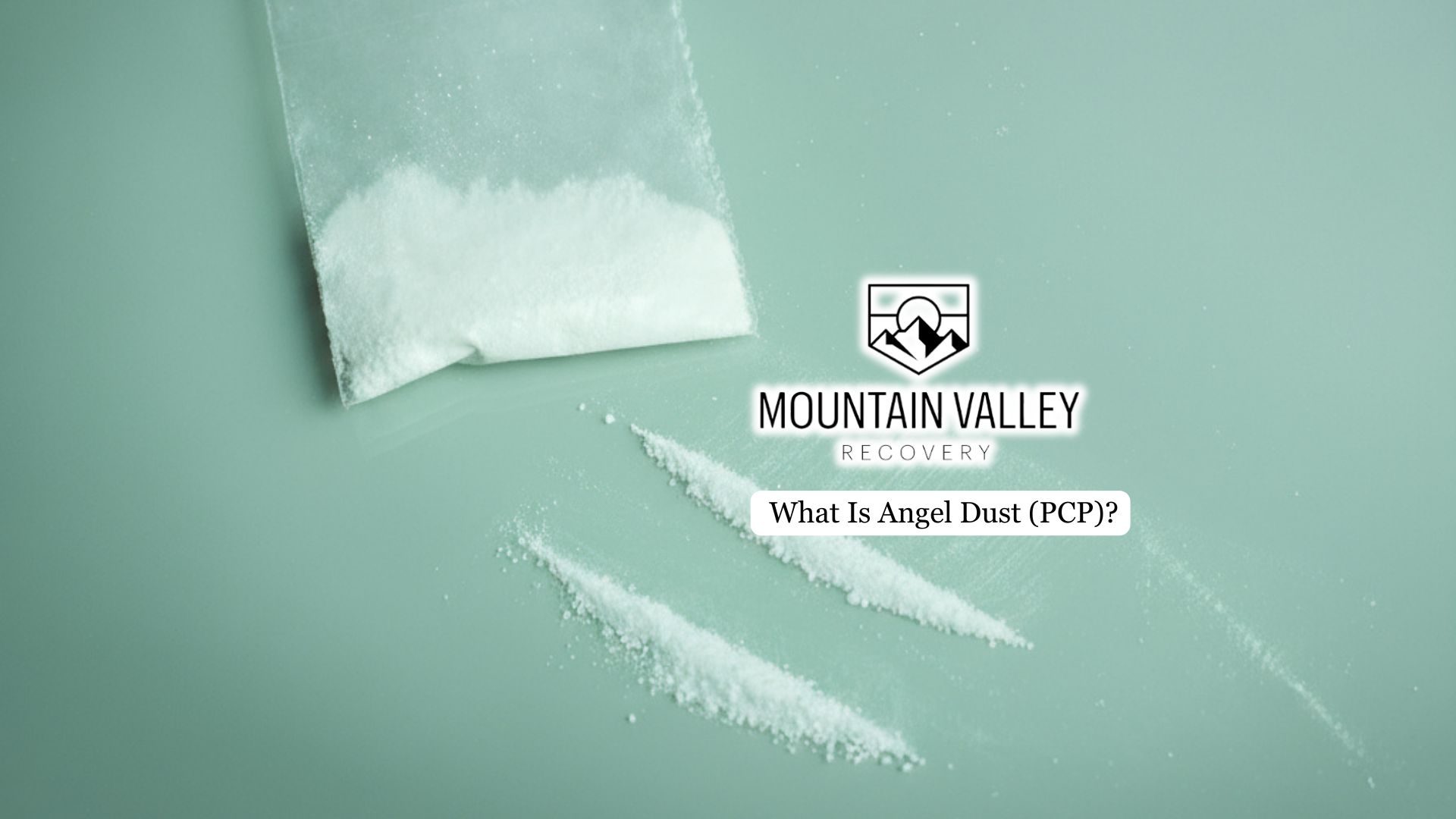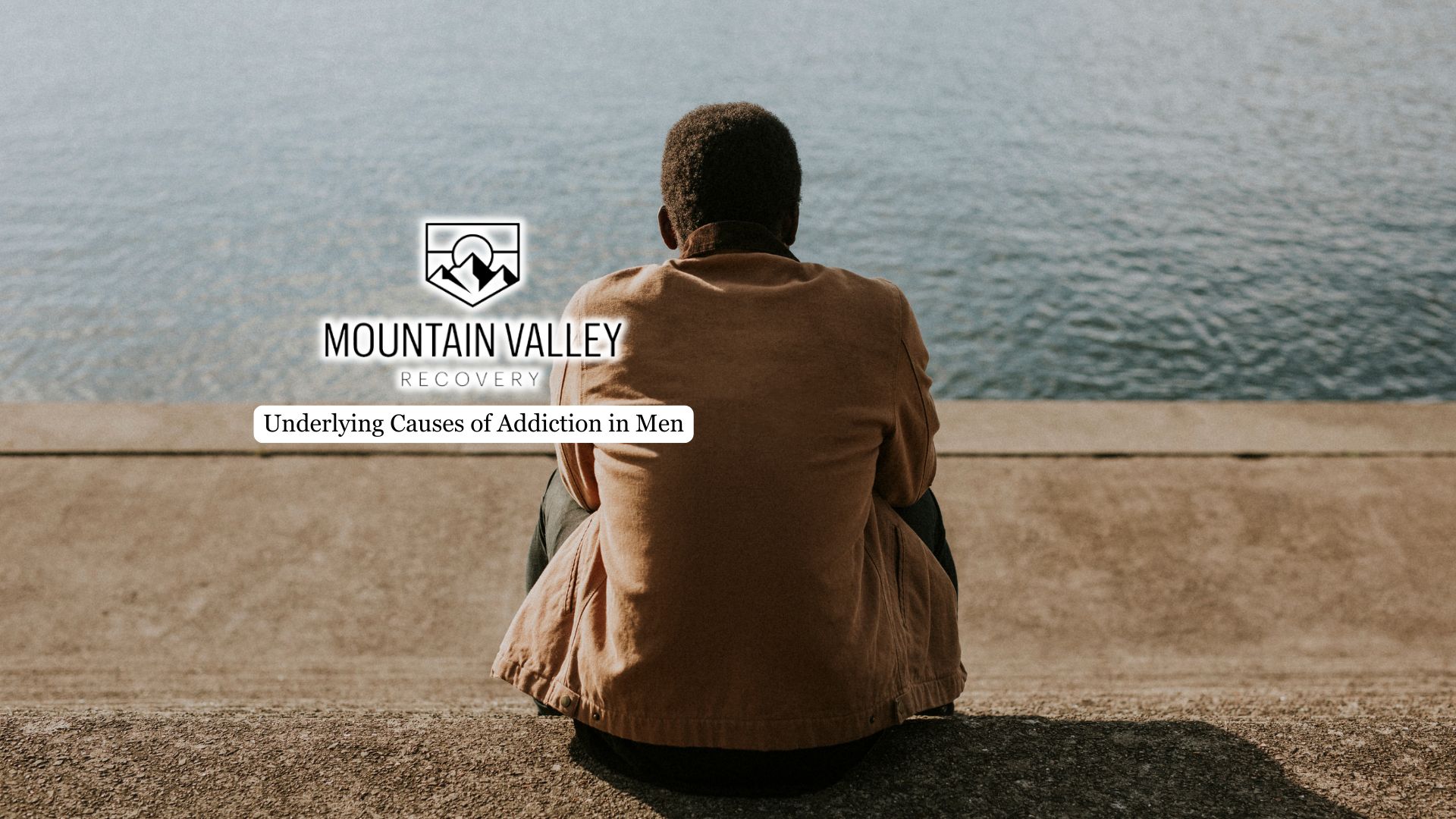Angel Dust, more formally known as phencyclidine (PCP), is a hallucinogenic drug that causes powerful effects on both the brain and body. First developed in the 1950s as a surgical anesthetic, it was discontinued because of severe side effects, including hallucinations, confusion, and violent behavior. Today, it is classified as an illegal drug with high potential for abuse and dangerous consequences.
This article explains what Angel Dust is, its short-term and long-term risks, why it is so hazardous, and how treatment can support recovery.
What Angel Dust Is
This drug is a synthetic dissociative substance, meaning it disrupts the connection between perception and reality. It is most often seen as a white crystalline powder, but can also appear in liquid or pill form. Common methods of use include smoking, swallowing, snorting, or injecting. Many users dip marijuana or tobacco cigarettes into a liquid solution, which heightens their effects.
Once inside the body, the substance interferes with neurotransmitters, particularly glutamate, which plays a critical role in memory, learning, and pain regulation. Disrupting these pathways creates hallucinations, dissociation, and a distorted sense of reality, making the drug highly unpredictable and dangerous. For men facing these risks, PCP addiction rehabs that specifically cater to their unique needs can provide targeted support and a path toward recovery.
Short-Term Effects
At lower levels, it may create feelings of euphoria, detachment, or relaxation. Some users describe sensations of floating outside their bodies or feeling immune to harm. However, these effects come with significant risks, including confusion, impaired coordination, blurred vision, and rapid mood swings. Even a small dose can make driving or operating machinery extremely unsafe. At higher doses, the dangers escalate. Users may experience intense paranoia, vivid hallucinations, delusional thinking, and extreme agitation.
Physical effects include increased blood pressure, rapid heartbeat, nausea, dizziness, and muscle rigidity. Seizures, unconsciousness, or life-threatening medical emergencies may occur. Because the drug blunts pain, individuals may injure themselves without realizing it, often resulting in delayed or unnoticed trauma. This combination of psychological and physical effects makes short-term use highly hazardous.
Long-Term Risks
Extended use causes both mental and physical consequences. Regular users often experience memory loss, reduced concentration, and lasting speech difficulties. Persistent anxiety, depression, and mood instability are common, with some individuals developing psychosis that continues long after drug use ends. These psychiatric complications may require ongoing treatment and can make day-to-day functioning extremely difficult.

Physically, the drug strains vital organs, including the liver, kidneys, and cardiovascular system, increasing the risk of long-term damage. The nervous system also suffers, as repeated use disrupts cognitive function, motor coordination, and judgment. Dependence is a serious risk, and stopping suddenly can trigger withdrawal symptoms such as cravings, headaches, insomnia, and irritability. These challenges highlight the importance of professional recovery support.
Why It Is So Dangerous
A person might experience calmness during one use and violent agitation during the next, even at the same dose. This variability makes outcomes impossible to predict and greatly increases the risk of harm. Users may suddenly act aggressively, lose awareness of their surroundings, or engage in reckless behaviors that put themselves and others in danger. The drug’s dissociative properties intensify this risk by detaching individuals from reality. People under its influence may not recognize hazardous situations, which increases the likelihood of accidents, self-harm, or unsafe interactions.
Compounding this, its ability to numb pain perception means that injuries can go unnoticed until they become severe. For many men, the added challenge is a reluctance to seek medical or therapeutic help due to cultural expectations around masculinity, which can delay care. These combined effects explain why Angel Dust is considered one of the most dangerous street drugs.
Treatment for Addiction
Addressing addiction to Angel Dust (PCP) requires professional medical care and a structured treatment plan. The initial phase typically involves medical detoxification, which safely helps the body eliminate the substance while managing withdrawal symptoms such as intense cravings, irritability, and disrupted sleep. Continuous medical monitoring during detox reduces discomfort and prevents potential complications, laying a solid foundation for ongoing recovery.
Following detox, therapy becomes a critical component of treatment. Cognitive-behavioral therapy (CBT) helps individuals recognize and replace negative thought patterns with healthier coping skills. Group counseling and peer support provide encouragement, accountability, and a sense of connection with others who are working toward sobriety. Because use often leaves lasting mental health challenges, ongoing psychiatric care may be needed to manage anxiety, depression, or lingering psychosis.
Final Thoughts from Mountain Valley Recovery
Angel Dust (PCP) is a dangerous hallucinogen with unpredictable short-term effects and severe long-term consequences. Its ability to alter perception, fuel aggression, and cause lasting psychological harm makes it a serious threat. Understanding these dangers is an important step toward encouraging those affected to seek appropriate help.
At Mountain Valley Recovery, we provide evidence-based PCP addiction treatment for men in Utah struggling with substance use. Our programs include safe detox, personalized therapy, and relapse prevention planning in a supportive environment. With professional guidance and structured care, we help clients move toward lasting recovery and healthier, more fulfilling lives.




